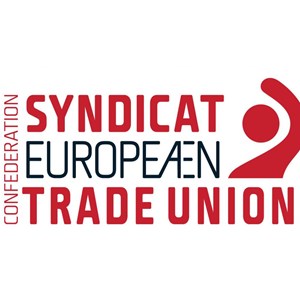NEWS

Our minds are constantly processing information, analysing situations, and making decisions. But what happens when cognitive demands at work become overwhelming? The mental effort required to perform tasks – known as mental workload – can significantly impact both our well-being and performance.

On 4 February, over 350 participants joined the high-impact webinar titled Implementing the EU AI Act through Standards. The webinar was organised by the AI Standards Hub and the CEN-CENELEC JTC 21 AI Inclusiveness Task Group (TG).

ETUC attended the latest plenary of the ISO Technical Committee 260 on Human Resource Management, which took place in Tokyo, Japan, in the week of 28 October 2024.

The Machinery Regulation (EU) 2023/1230, which will replace the Machinery Directive (EU) 2006/42 in 2027, continues to set out health and safety requirements for machinery design and construction, which are meant to be implemented through harmonized standards.

The ETUC co-organized an awareness event around standardization and its relevance for trade unions with affiliate UNI Europa, the European Services Workers Union.

Twice a year, ETUC organizes national workshops in order to increase awareness within the trade union movement about the world of standards, their influence at the workplace, and their development process. On 22 May, together with Spanish trade union USO, ETUC organized a national workshop in Madrid, Spain, which was kindly hosted on the premises of UNE, the Spanish Association for Standardization.

ISO/TC 260 on Human Resource Management is currently looking at preparing an international standard on ‘Guidance for risk management and the ethical use and adoption of technology’. The aim is to propose measures to mitigate the human capital risks and provide guidance for the use and adoption of technology for HR processes / practices and job roles. The ETUC is opposing the proposed work as the development of such a standard raises a number of concerns.

Security staff working at European airports and ports will receive higher levels of training under new standards set in conjunction with trade unions. ETUC and UNI Europa, representing security staff, have contributed to revising two European standards on the minimum criteria for the provision of security services in the aviation and maritime sectors.

The European Commission standardization request in support of EU policy on artificial intelligence (European Commission C (2023)3215), issued in May 2023, requires facilitating an appropriate representation and effective participation of relevant stakeholders in the development of the standards mandated to support the AI Act.

The ETUC participated to the second meeting of the European Commission’s High-Level Forum on Standardization (HLF), held in Brussels on Thursday 30 November. The Forum, chaired by Commissioner Thierry Breton, gathered the various stakeholders involved in standardization to discuss priorities and horizontal issues, including international leadership and education and skills.